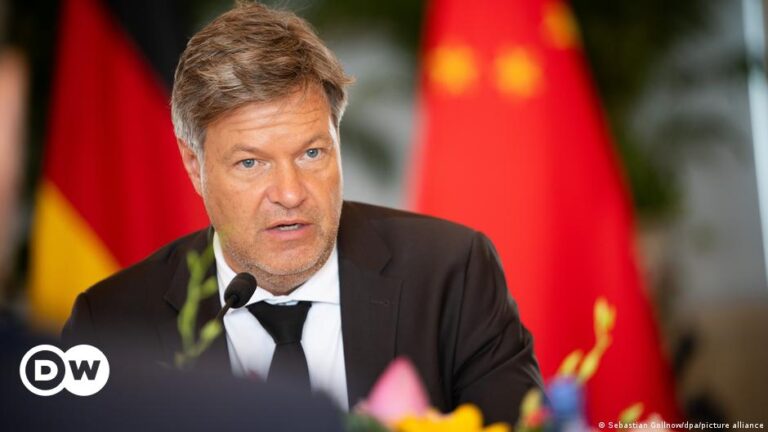The European Union (EU) is not punishing China by imposing tariffs on Chinese-made electric vehicles (EVs), German Economy Minister Robert Harbeck said in Beijing on Saturday.
His comments come in response to EU plans to impose tariffs on imports of Chinese-made electric vehicles to tackle overcapacity in the auto sector, which the EU says is being caused by Chinese automakers flooding the European market with cheap cars.
What did Robert Harbeck say?
Speaking during his visit to China, the vice premier called on the Chinese government to take seriously the findings of the investigation by the European Commission, the EU’s executive arm.
“It’s important to understand that these are not punitive tariffs,” said Harbeck, who is also Germany’s economy minister.
He said the European Commission had spent nine months conducting a detailed investigation into whether Chinese automakers were benefiting unfairly from heavy government subsidies.
He said the tariffs imposed as a result of the EU review “are not punitive but intended to compensate Chinese automakers for the benefits they are making from subsidies.”
Harbeck told Chinese officials it was crucial that Brussels strives to maintain a level playing field for Europe’s auto industry.
“Common and equal standards regarding market access should be achieved,” Habeck said.
The vice premier then flew to Shanghai and made new comments on the tariff issue.
“What I said to our Chinese partners today is that the door is open to discussions and I hope that message was heard.”
China warns of backlash over Russian stance
Earlier, Harbeck reiterated his warning that China would face economic consequences for supporting Russia in the Ukraine war, noting that EU countries are reducing their reliance on imports from China.
“If it weren’t for this war, or China’s support for Russia in this war, we would have proceeded differently and not been so strict in our analysis of our dependencies on raw materials and technological products,” Harbeck stressed.
He said German and European security interests were directly affected by the conflict, which has been raging for two and a half years.
Harbeck was speaking at the Climate and Transformation Dialogue plenary session in Beijing.
What is the EU accusing China of doing?
In October, the European Commission announced it would launch an investigation into anti-subsidy measures for Chinese-made EVs imported into Europe.
European Commission President Ursula von der Leyen warned that “the global market is flooded with cheaper electric cars”.
She said vehicle prices were “kept artificially low” because of “huge government subsidies” from Beijing.
Last week, Brussels announced plans to impose different tariffs on imports from Chinese automakers depending on their compliance with EU trade rules.
Temporary tariffs of up to 38% are scheduled to take effect on July 4th.
The EU investigation is due to continue until November, at which point firm tariffs could be imposed for up to five years.
Foreign Minister Harbeck told his Chinese counterpart that there would be time for dialogue between the two countries until then.
“This opens the stage where negotiations are possible, discussions are important and dialogue is necessary,” Habeck said.
During its rapid economic development, China has repeatedly been accused of unfair trade practices, including dumping cheap goods ranging from shoes to solar panels onto global markets and infringing on the intellectual property rights of Western brands.
Meanwhile, Washington has imposed 100% tariffs on Chinese-made electric vehicles, effectively shutting them out of the U.S. market.
How did Beijing respond?
Ahead of Harbeck’s visit, China warned that growing friction with the EU over electric vehicles could spark a trade war.
Zheng Shanjie, chairman of China’s National Development and Reform Commission, denied allegations of unfair subsidies on Saturday, telling the conference that Beijing would “take all measures to protect Chinese companies.”
Zheng said the growth of the auto industry is “the result of competition, not subsidies or unfair competition.”
He added that the proposed tariffs could hurt both sides and he hoped Germany would show leadership within the EU and get the “right thing done.”
Chinese Commerce Minister Wang Wentao later said he would discuss the tariffs with EU Commissioner Valdis Dombrovskis via video conference on Saturday evening.
mm/rm (dpa, Reuters)

